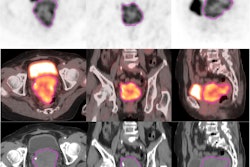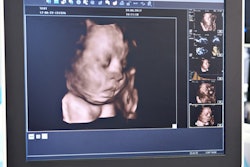Dear AuntMinnie.com Member,
Our most highly viewed story this week reported on new research that tied breast imaging features to pathological findings.
A team of researchers from Iran retrospectively analyzed trends for 342 women under the age of 30 with primary breast cancer and concluded that round and oval masses on mammography are more common in triple-negative and Luminal B cancers in this patient group. What else did they find? Click here for our article.
Meanwhile, a natural language processing foundation model developed by Google was deemed to be successful for classification tasks and extracting information from radiology reports, according to a literature review published this week.
In other developments attracting interest from AuntMinnie.com members, a deep-learning model that incorporates CT radiomics and clinical information showed promising performance for predicting lymph node metastasis in bladder cancer patients.
Speaking of AI, the World Health Organization (WHO) has warned that large multimodal models have risks that low-income societies and health systems may not be prepared for. Click here for all of the details.
Tackle football can lead to changes for adolescents in regions of the brain linked to mental health, according to a new study that garnered significant page views.
See the full list below of our most popular stories of the week:
- Breast imaging features tied to pathological findings in young women
- BERT-based AI poised for use in radiology
- CT radiomics predict lymph node metastasis in bladder cancer patients
- WHO: AI use in low-income countries could be ‘dangerous’
- Football head impacts affect brain regions linked to mental health
- Use CT first to triage chest pain patients for revascularization
- Can robots transform U.S. medical isotope production?
- How can radiation oncology build its workforce?
- Order variation high among rads for CT, MRI head and neck imaging
- Using deep learning with CT helps predict hip fractures
- PET/CT radiomics predicts outcomes in women with cervical cancer
- Residents describe use of POCUS for high-risk pregnancies in Nepal
- PSMA-PET helps plan treatment in men with relapsed prostate cancer
- AI improves performance of nonradiologists in chest imaging



















